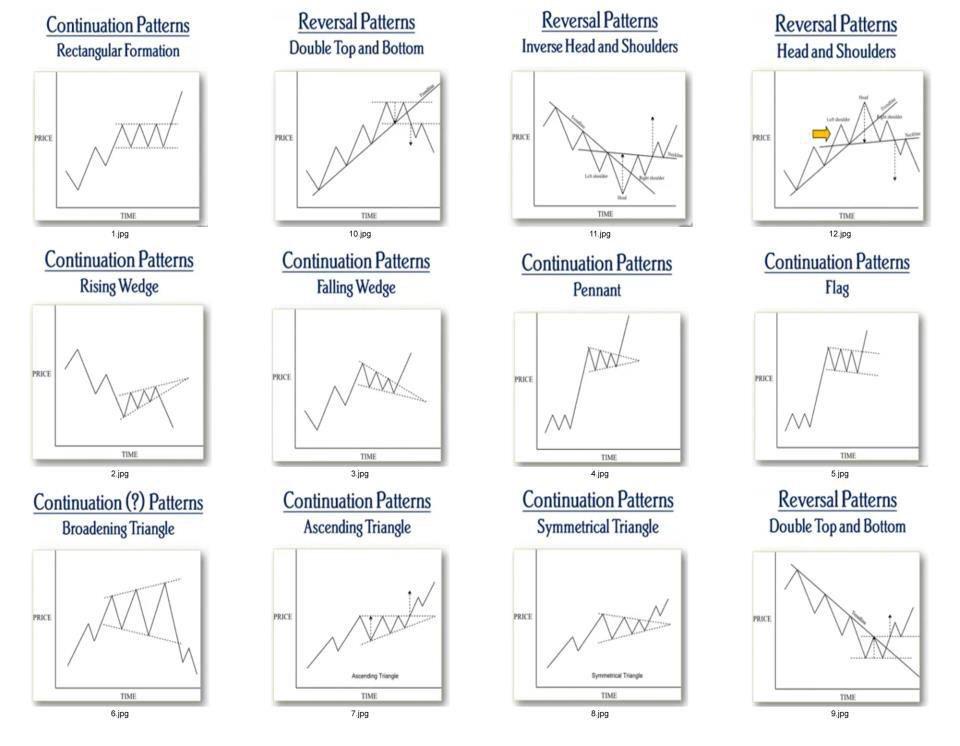
Archives of “January 7, 2019” day
rssBasic chart patterns to study.

Cold Truth About Emotional Investing
Consider an excerpt:
WSJ: What do you mean by emotional finance?
PROF. TUCKETT: What we try to do in emotional finance is start with the fact that the future is unknowable. The key thing about uncertainty is that it inevitably generates feelings. Because it matters to you, because your money’s on the line, so to speak, you’re bound to feel emotionally engaged.
WSJ: Some people think pros are more rational than individual investors.
PROF. TAFFLER: Although most of the fund managers we interviewed saw part of their particular competitive advantage as remaining, as they described it, unemotional or rational, in practice they were just as emotional as anyone else when they started to talk about the stocks they had invested in. There were lots of examples where they referred to them almost as if they were lovers.
If you’re entering into an emotional relationship with a stock, an asset or a company that can let you down, this leads to anxiety, which is often not consciously acknowledged. But it’s there, bubbling beneath the surface.
WSJ: The fund managers told stories about their investments. What was the role you found that storytelling played in their decision making? (more…)
Good quote from an investor named Robert Jaffe

Leisure Hours Online

10 rules for the deal maker – Craig

German DAX -All Eyes on 9848 ,Next Target 10060-10130 level.
Best Quality of Successful Traders
AN 1873 LETTER ON LUCK VERSUS SKILL
We often confuse luck with skill, especially in the stock market. In fact, Michael J. Mauboussin has written a worthy read on separating the two in his newest book The Success Equation: Untangling Skill and Luck in Business, Sports, and Investing. But long before the contemporary discussions of luck versus skill, ancient speculators were enthralled by luck’s deceptive ways of making mere mortals feel godlike. However, that sense of omniscience, just like a string of luck, is fleeting and continues to lure modern speculators into a trap today just like it did Saxon-les-Bains, a man of culture, almost 150 years ago. In a 1873 letter to The Spectator entitled “A Study in the Psychology of Gambling” Saxon-les-Bains describes his gambling experience in Monte Carlo.
And what was my experience? This chiefly, that I was distinctly conscious of partially attributing to some defect of stupidity in my own mind, every venture on an issue that proved a failure; that I groped about within me something in me like an anticipation or warning (which of course was not to be found) of what the next event was to be, and generally hit upon some vague impulse in my own mind which determined me: that when I succeeded I raked up my gains, with a half impression that I had been a clever fellow, and had made a judicious stake, just as if I had really moved skillfully as in chess; and that when I failed, I thought to myself, ‘Ah, I knew all the time I was going wrong in selecting that number, and yet I was fool enough to stick to it,’ which was, of course, a pure illusion, for all that I did know the chance was even, or much more than even, against me. But this illusion followed me throughout. I had a sense ofdeserving success when I succeeded, or of having failed through my own willfulness, or wrong-headed caprice, when I failed. When, as not infrequently happened, I put a coin on the corner between four numbers, receiving eight times my stake, if any of the four numbers turned up, I was conscious of an honest glow of self-applause… (more…)



